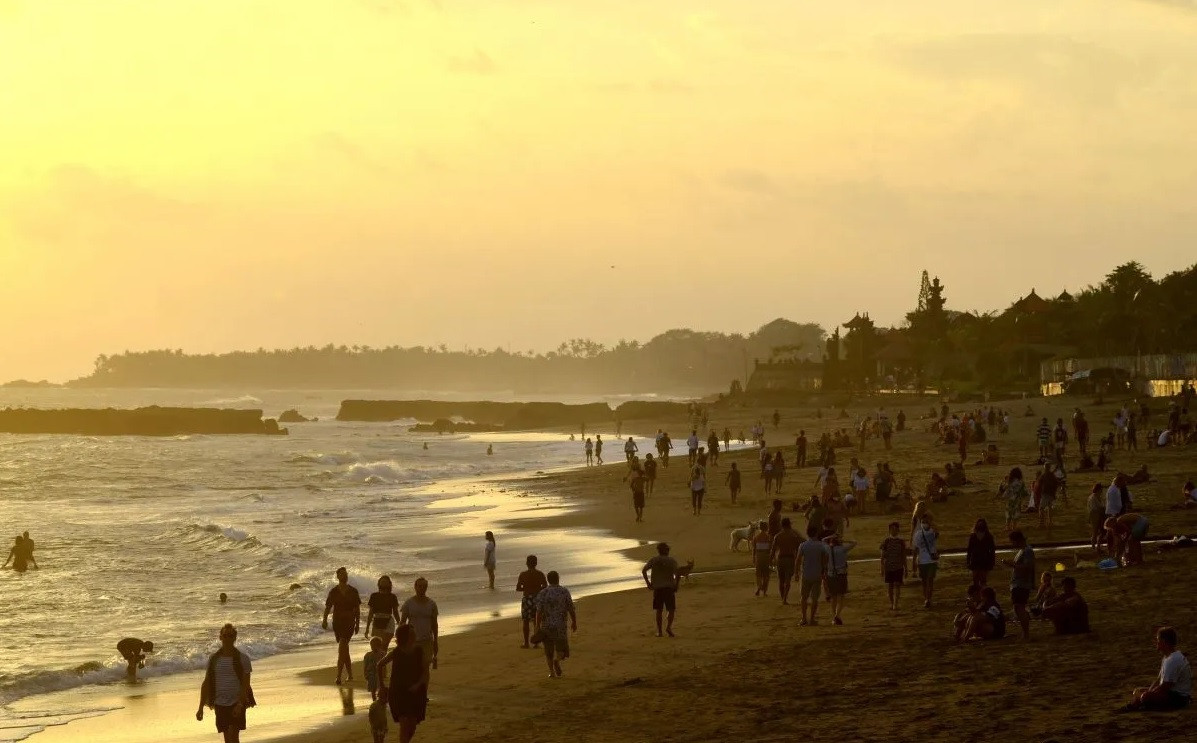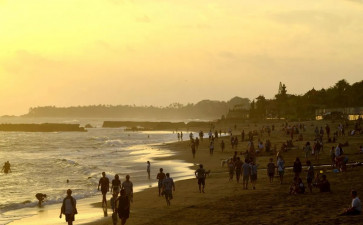Popular Reads
Top Results
Can't find what you're looking for?
View all search resultsPopular Reads
Top Results
Can't find what you're looking for?
View all search resultsBali needs a sustainable strategy to fight over-tourism
When "too many" people are in one place simultaneously, the local people and the environment are adversely affected.
Change text size
Gift Premium Articles
to Anyone
A
viral Instagram video that showed the transformation of Canggu, one of the most visited neighborhoods in Bali, caught many by surprise. The video, posted by environmental activist Gary Bencheghib, compared the "Canggu shortcut" situation in 2016, when terraced paddy fields still surrounded it, to now, with concrete buildings lining the way.
The video demonstrates how much the situation has changed over seven years and, therefore, has raised concerns about how Bali will change in the next decade.
Like many other tourist destinations in Indonesia, Bali is lauded because of its natural beauty, from scenic beaches and tropical climates to volcanic mountains and biodiversity. Environmental concerns have become significant spotlights in the country's tourism sector over the years.
Government data shows that 8.5 million foreign tourists visited the country from January to September of this year. The inflow has shown a significant increase compared to last year's visitors of 5.8 million, showing that the tourism sector has gradually rebounded, although it is still far from the pre-pandemic level of 16.1 million annual visitors in 2019.
Bali saw 3.9 million foreign tourists and 7.1 million domestic visitors for the first nine months of this year. At the pre-pandemic level, around 6 million foreigners and 10 million Indonesians flocked annually to the "Island of the Gods", home to 4.4 million people.
While the influx of foreign and domestic tourists is strongly needed for Bali's economy to recover, the big question is whether this massive inflow, of both income and people, is worthwhile, given the environmental and social impacts.
Having a lot of tourists visiting Bali is advantageous, but over-tourism is a problem. Tourism and Creative Economy Minister Sandiaga Uno warned that during the tourism peak season in August Bali faced the risk of over-tourism. When "too many" people are in one place simultaneously, the local people and the environment are adversely affected.



















